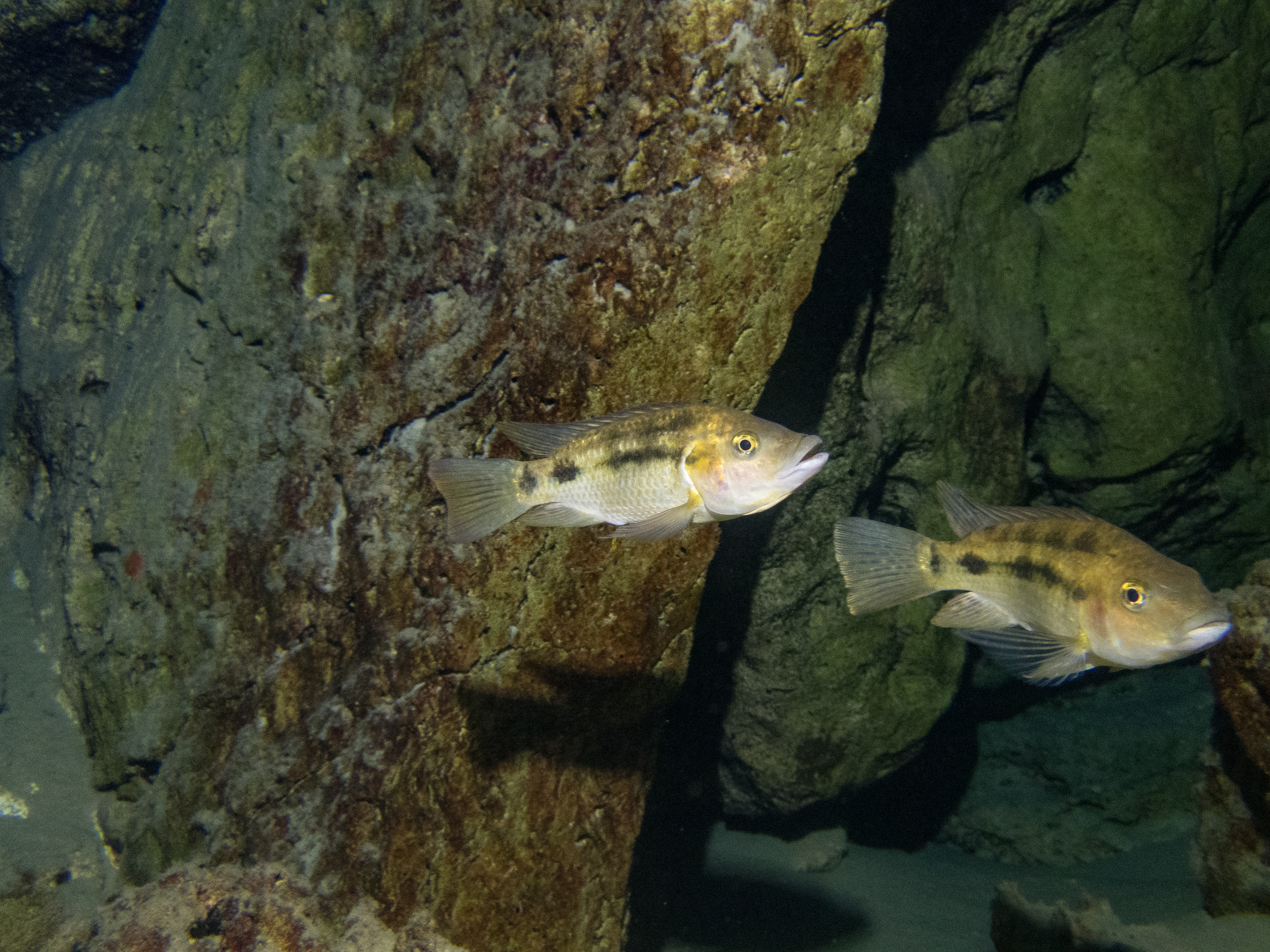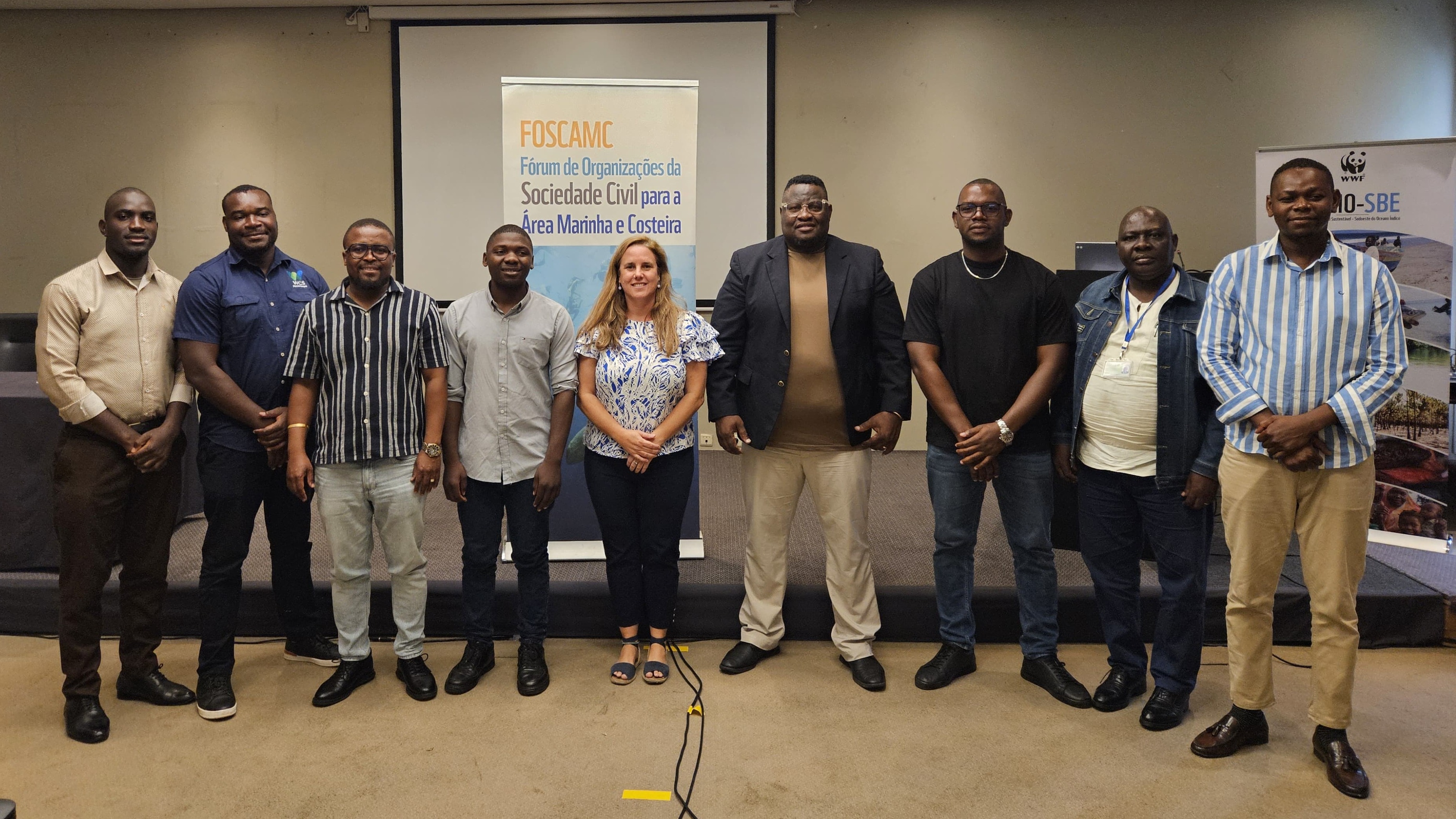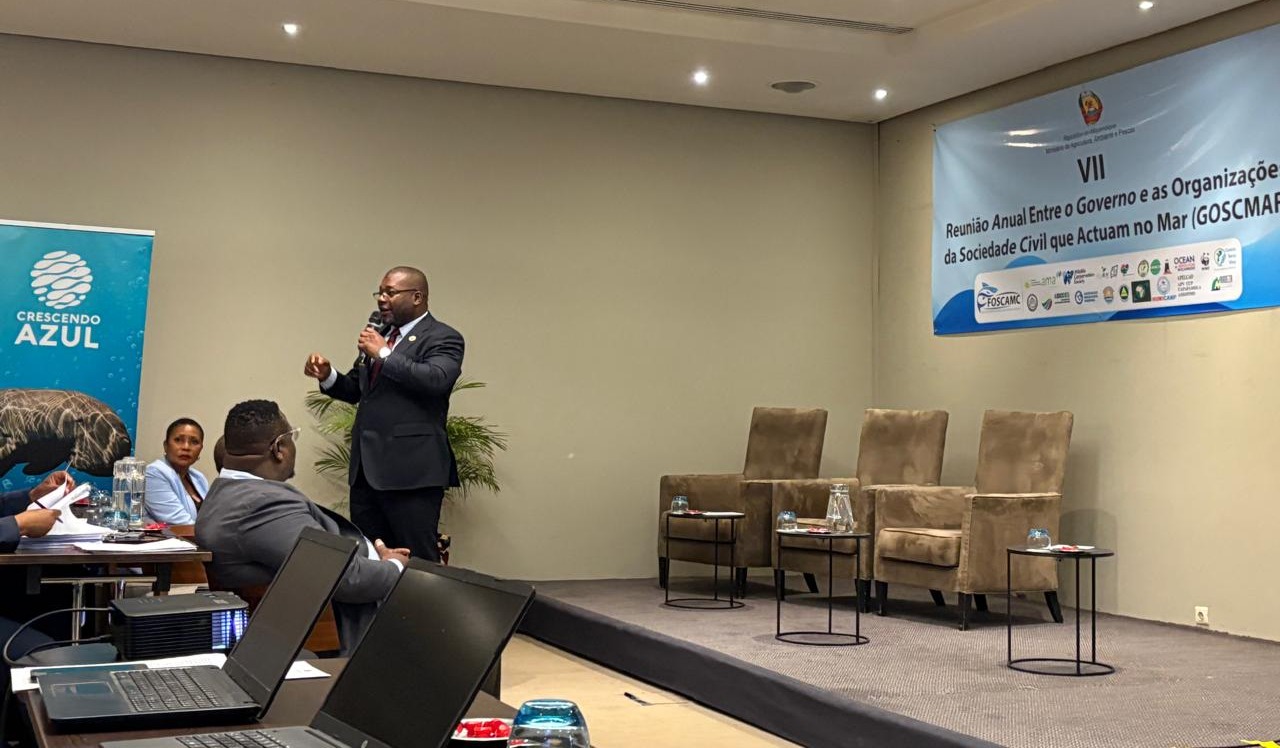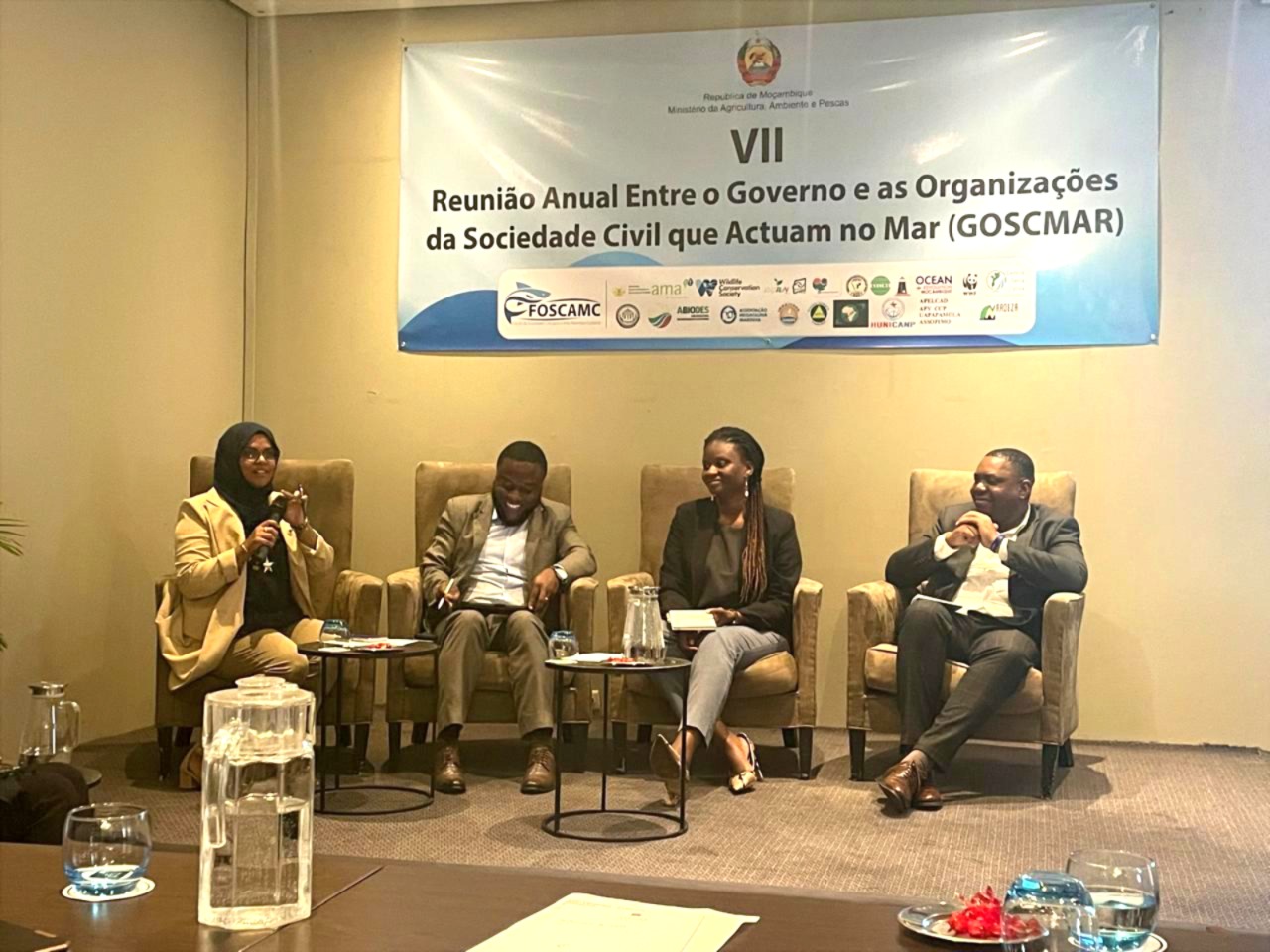The Wildlife Conservation Society (WCS) Mozambique, a member of the Forum of Civil Society Organizations for Marine and Coastal Areas (FOSCAMC), participated in the Forum's 10th General Assembly Meeting, held on 4 and 5 November 2025 at the Avenida Hotel in Maputo City.
The meeting brought together around 50 representatives from 32 civil society organizations from the country's seven coastal provinces (Maputo, Gaza, Inhambane, Sofala, Zambezia, Nampula and Cabo Delgado) with the aim of strengthening collaboration and coordination among Forum members and promoting public policies that contribute to the sustainable management of marine and coastal resources.
During the event, WCS presented the study "Blue Holes of Nacala: Ecology and Associated Funding Opportunities," highlighting the ecological importance of the Janga area in Nacala, its potential to be recognized as a Key Biodiversity Area, its importance for the persistence of global biodiversity, and its contribution to the well-being of communities by regulating the climate and providing water, food, and medicine.

Figure 1. Record of tilapia occurrence in blue holes in Janga (©Erwan Sola)
The meeting also included discussions on the functioning of the Forum, a review of the recommendations from the previous meeting, and the election of the new secretariat – the Environment Association (AMA) and the FOSCAMC coordination group, composed of six organisations, namely such as WCS, WWF, Gaza National NGOs Forum (FONGA), National Rural Extension Association (AENA), AMA and Local Economic Development Agency (ADEL).

Photo 2. Members of the new FOSCAMC Coordination Group. From left to right: Da esquerda para direita: Armando Nhabanga (FONGA), Jorge Sitoe (WCS), Jordão Matimula (AENA), Celso Eduardo (AMA), Dalila Sequeira (WWF), Tomás Langa (AMA), Jeremias Utui (AMA), Chande Bunzuare (ADEL Cabo Delgado), and Eugénio Sigaúque (ADEL Sofala) (© FOSCAMC)
Following the event, on 6 November, FOSCAMC participated in the VII National Meeting between the Government and Civil Society Organizations working in marine and coastal areas. The meeting was attended by representatives from the Ministry of Agriculture, Environment and Fisheries (MAAP), cooperation partners, academics and environmental activists, reinforcing the joint commitment to sustainable management of marine and coastal resources.
In his speech, the Secretary of State for the Sea and Fisheries, Momade Juízo, on behalf of MAAP, highlighted the importance of a rational use of resources, by stating that: ‘Marine and coastal resources must be used sustainably, ensuring the future of the next generations’.

Figure 3. The Secretary of State for the Sea and Fisheries, Momade Juízo, representative of MAAP, during his speech at the 7th GOSCMAR Meeting (© Dalila Sequeira)
The VII Meeting also featured three thematic panels, including the National Strategy for the Expansion of Marine Conservation Areas, whose debate was moderated by WCS. The discussions highlighted the benefits that implementing the strategy could bring to Mozambique, such as access to new international financing, strengthening food security, and creating economic opportunities for coastal communities.

Figure 4. Moments of interaction during Panel 2 on the National Strategy for the Expansion of Marine Conservation Areas. From left to right: Naseeba Sidat (WCS), Pejul Calenga (ANAC), Stela Fernando (InOM) and Rui Mutombene (DINAPA) (©Alexis Chrisafis)
During the sessions, the National Action Plan for the Conservation and Management of Sharks and Rays in Mozambique was also presented by the representative of the National Directorate of Fisheries and Aquaculture (DINAPA). WCS played an important role in this process, providing technical and financial support for the development of the plan, in coordination with the fisheries sector.
Overall, these meetings represent an important step towards aligning civil society actions with national priorities and reinforce Mozambique's role as a regional leader in marine conservation.